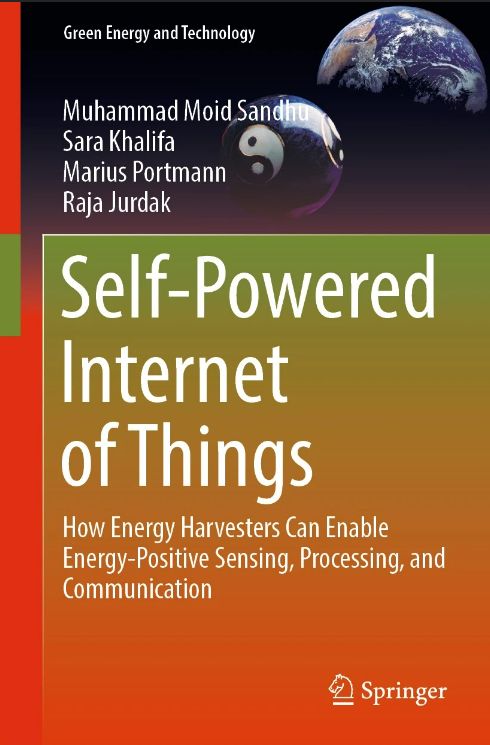World-first book by AEHRC researcher out now
What if we could create self-powered wearable sensors that could operate perpetually without human intervention?
In Self-Powered Internet of Things, AEHRC’s Moid Sandhu proposes mechanisms that could make this a reality.
The book, co-authored by Sarah Khalifa (CSIRO’s Data61), Marius Portmann (UQ) and Raja Jurdak (QUT), is the first to explore energy harvesters as simultaneous sources of energy and context information.
The energy harvesting-based sensing mechanism, which the authors coined as energy-positive sensing, could enable battery-less sensors for activity, fitness, and health monitoring.
Implementing battery-less sensors would remove the burden of frequently recharging or replacing sensor batteries. This would particularly benefit older adults, people living with a disability, and people in remote areas.
The proposed mechanisms will help to build self-powered, autonomous, and green wearable devices that can operate perpetually without human intervention.
Self-Powered Internet of Things is now available for purchase and download.
Find out how we’re using sensor-based technology to improve quality of life for older Australians.
Self-Powered Internet of Things explains how energy harvesters can enable energy-positive sensing, processing, and communication.
The Australian e-Health Research Centre (AEHRC) is CSIRO's digital health research program and a joint venture between CSIRO and the Queensland Government. The AEHRC works with state and federal health agencies, clinical research groups and health businesses around Australia.

